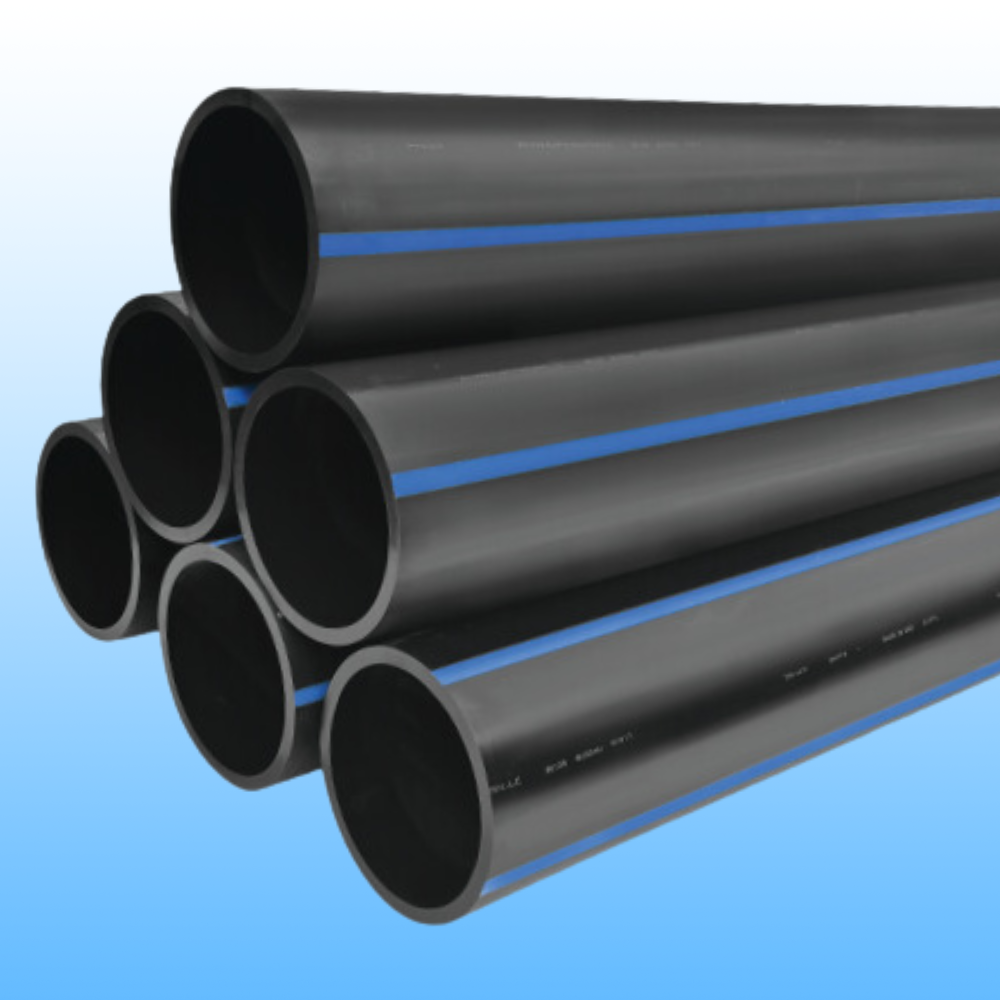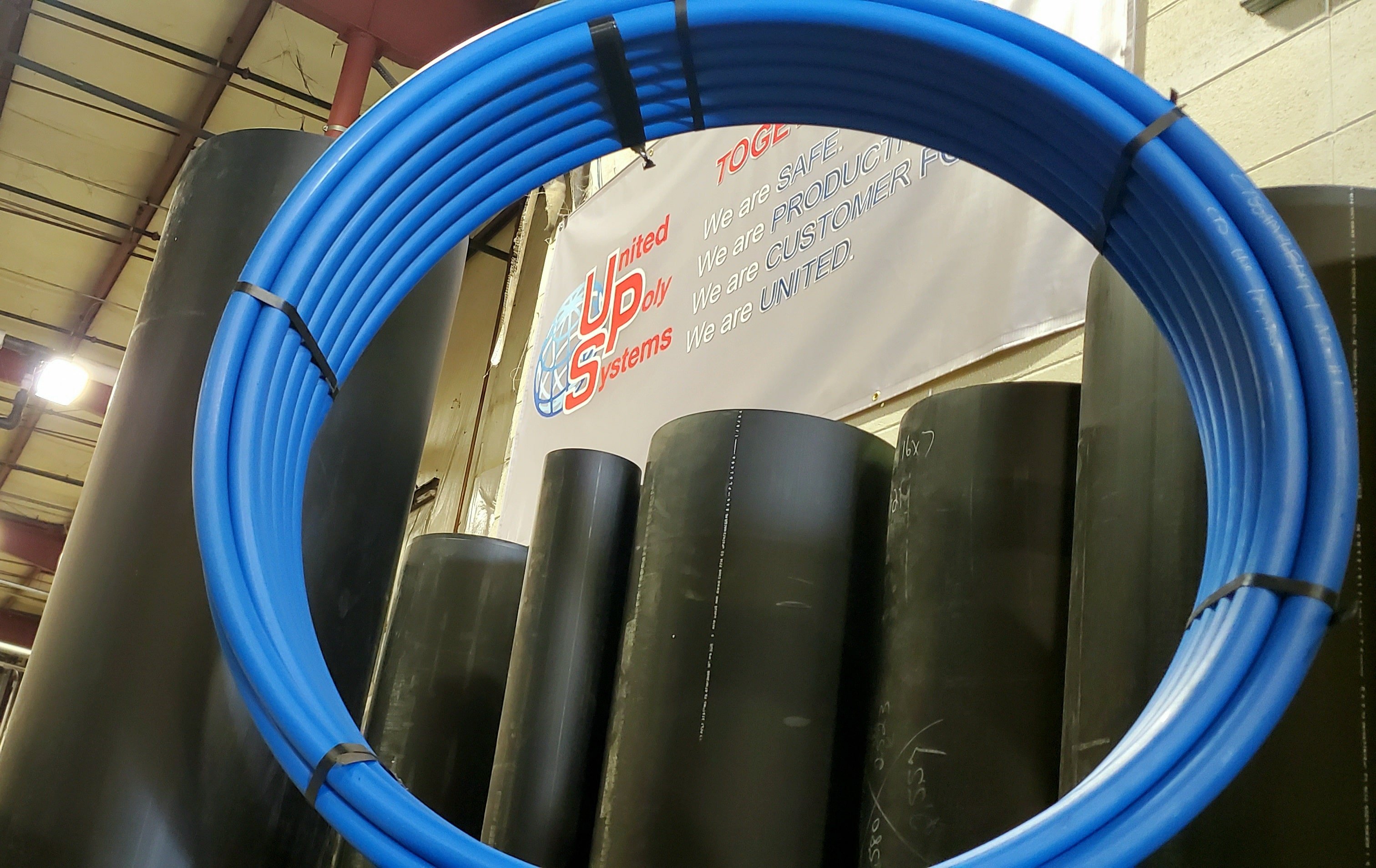Understanding the Secret Advantages of HDPE Pipeline for Water and Wastewater Administration
Using HDPE pipeline in water and wastewater management offers various advantages that warrant factor to consider. Its phenomenal sturdiness and lengthy lifespan make it a preferred option for several projects. Additionally, the material's resistance to rust and chemical damages enhances its reliability in various settings. Nevertheless, the benefits expand beyond just longevity and resistance. Discovering its cost-effectiveness and ecological influence discloses much more engaging factors for its prevalent fostering in modern framework
Phenomenal Sturdiness and Longevity

HDPE pipe stands out for its phenomenal toughness and longevity, making it a recommended selection in water management systems. Constructed from high-density polyethylene, these pipes can hold up against significant pressure and stress and anxiety, ensuring dependable performance with time. Their durable nature enables them to endure extreme ecological conditions, including temperature changes and dirt activities, which can create other materials to fail.
The lifespan of HDPE pipes often goes beyond 50 years, offering a cost-effective service for towns and industries alike. In addition, the product's light-weight buildings simplify installment, decreasing labor expenses and timeframes. This durability decreases the requirement for constant repairs or replacements, additionally improving its financial allure.
In water administration applications, the integrity of HDPE pipelines indicates fewer interruptions and boosted service connection, making them integral to lasting infrastructure development. The mix of sturdiness and durability strengthens HDPE's duty as a cornerstone in reliable water administration solutions.

Resistance to Corrosion and Chemical Damages
While numerous materials catch deterioration and chemical damages with time, HDPE pipelines exhibit impressive resistance, making them optimal for numerous water management applications. This resilience comes from the molecular structure of high-density polyethylene, which is naturally non-reactive and does not rust like metals or break down from exposure to rough chemicals. As a result, HDPE is extremely efficient in settings with aggressive compounds, such as wastewater systems that might have acids, bases, and organic solvents.
In addition, HDPE pipelines can hold up against environmental elements such as soil level of acidity and saline conditions, further enhancing their viability for varied applications (custom hdpe pipe manufacturing Midland TX). Their capability to maintain architectural stability gradually decreases the threat of leaks and failures, which is essential in making certain the safety and integrity of water distribution and wastewater administration systems. Subsequently, the resistance to corrosion and chemical damage noticeably adds to the total efficiency and durability of HDPE piping options
Cost-Effectiveness and Financial Benefits
When taking into consideration the economic implications of water management systems, the cost-effectiveness of HDPE pipelines comes to be noticeable. These pipelines use reduced installment and upkeep costs contrasted to traditional materials like steel or concrete. Their light-weight nature simplifies transportation and installment, resulting in lowered labor costs. In addition, HDPE pipes exhibit a long life-span, usually going beyond 50 years, which translates to fewer substitutes and long-term cost savings.
In addition, the resistance of HDPE to corrosion and chemical damage decreases the requirement for pricey repairs and substitutes. The pipes additionally sustain reliable water circulation, minimizing power prices related to leaking pipe pumping systems. By minimizing leaks and water loss, HDPE pipelines add to substantial economic benefits for communities and industries alike. In general, the first investment in HDPE piping can generate considerable financial returns over the lifespan of the water management system, making it a sensible choice for sustainable infrastructure advancement.
Ecological Sustainability and Decreased Influence

Versatility and Adaptability in Installment
Due to their one-of-a-kind residential properties, HDPE pipes use remarkable adaptability and versatility in setup, making them ideal for a vast array of applications. Their light-weight nature enables simpler handling and transport, reducing labor expenses and setup go to this web-site time. HDPE pipes can be bent and shaped to fit different terrains and project requirements, which is especially helpful in testing environments.
Furthermore, their resistance to deterioration and chemical damage enables installation in varied setups without the requirement for specialized protective finishings. The capability to fuse joints develops a constant, leak-free system, boosting the overall honesty and reliability of the setup. HDPE's adaptability also suits ground movement, decreasing the threat of damage in locations prone to shifting dirt. On the whole, these features make HDPE pipelines not just versatile yet likewise a favored option for water and wastewater administration systems.
Often Asked Questions
Just How Does HDPE Pipeline Contrast to PVC in Water Management Applications?
HDPE pipe supplies remarkable adaptability, resistance to deterioration, and resilience contrasted to PVC. Its lighter weight assists in simpler setup, while its lengthy life-span reduces substitute expenses, making HDPE a recommended option in water management applications.
What Is the Life Expectancy of HDPE Pipes Under Common Conditions?
Under common problems, HDPE pipelines can have a life-span varying from 50 to 100 years. Their longevity and resistance to deterioration add to their long-lasting performance in different applications, making them a reputable option for facilities.
Are HDPE Pipes Recyclable After Their Solution Life?
Yes, HDPE pipelines are recyclable that site after their solution life. American Plastics HDPE Pipe Manufacturing. They can be refined and repurposed right into brand-new products, considerably minimizing environmental impact and advertising sustainability within the industry, making them an environmentally friendly selection for piping options
What Is the Installment Process for HDPE Pipeline?
The installment process for HDPE pipelines includes site prep work, trenching, pipeline fusion or mechanical signing up with, backfilling, and stress screening. Correct techniques ensure a resilient and reliable system for delivering water and wastewater properly.
Can HDPE Pipes Be Made Use Of for Both Drinkable and Non-Potable Water Systems?
Yes, HDPE pipes can be used for both potable and non-potable water supply. Their adaptability, sturdiness, and resistance to deterioration make them appropriate for numerous applications, guaranteeing risk-free and reliable transport of water in various contexts.